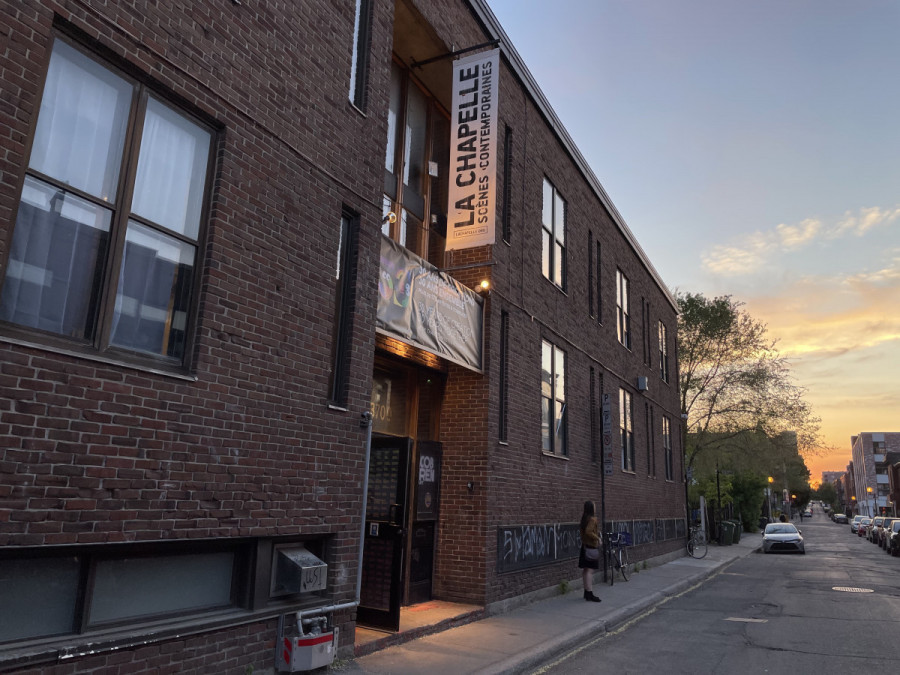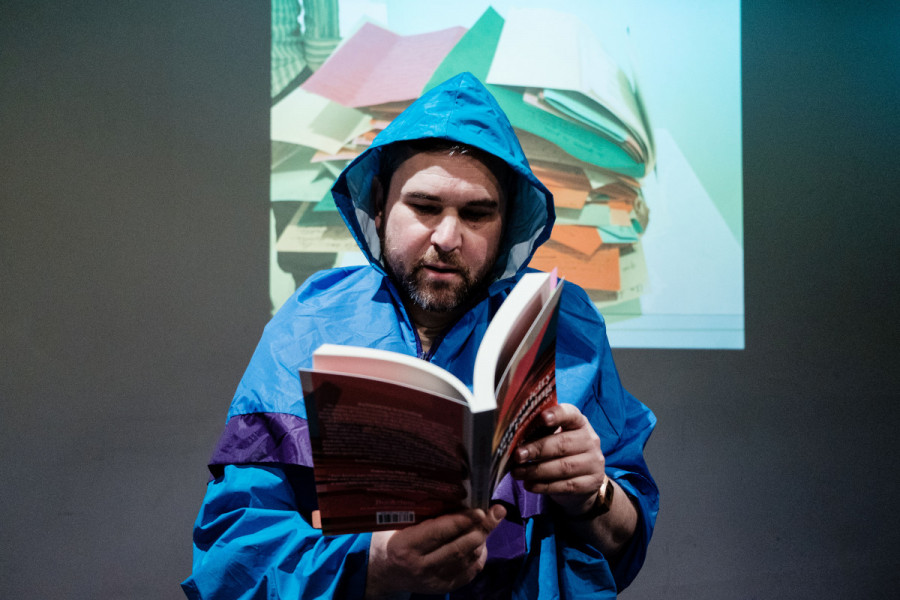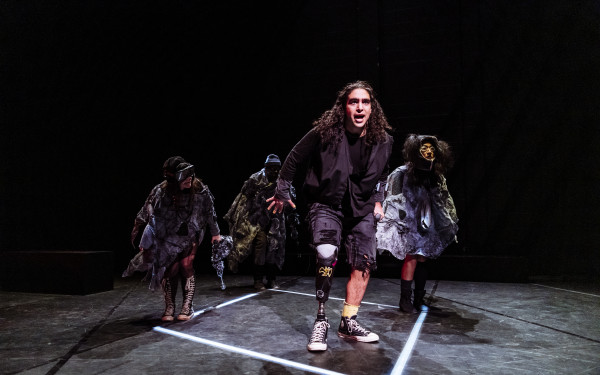Contemporary performance group PME-ART embraces its next era of art and activism
“Thinking about the past 20 years creates excitement for the next 20 years”
In 2018, co-artistic director Jacob Wren published Authenticity is a Feeling: My Life in PME-ART, in which Wren looked back on 20 years of performance art, installations, and conferences.
In May 2021, PME-ART relaunched its first live performance since the pandemic at La Chapelle Theatre, titled A User’s Guide to Authenticity—a lecture-performance that accompanies Wren’s book. Wren’s ode to 20 years of PME-ART ushered in a new era for the company which led to the creation of Vulnerable Paradoxes, a series of roundtables where 13 artists discuss their experiences in contemporary performance.
PME-ART is a collaborative, interdisciplinary performance group whose work examines and critiques performance art and theatre settings. Wren joined the company in 1998, after meeting co-artistic director Sylvie Lachance and administrative director Richard Ducharmes. Since then, their partnership has been founded on the basis of art as a vehicle for political action.
In his book, Wren takes the reader through 20 years of the group’s work in chronological order, highlighting some of the group’s most notable performances as they toured around the world. A User’s Guide to Authenticity featured still images and music that paid homage to some of the group’s past performances and artists.

PME-ART’s shows have never shied away from uncomfortable, awkward or difficult subjects. The group aims to challenge the public’s individual values by including unscripted onstage dialogues between performers and participatory exchanges between performers and audiences.
While Wren’s book reflected on two decades of PME-ART, artists within the group saw the anniversary as the beginning of a new era. In 2019, Lachance and Wren formed a committee that selected a group of 13 artists to discuss their experiences in performance arts. With that came the birth of Vulnerable Paradoxes—a series of roundtables that featured artists from all around the world—launched online early in the pandemic in collaboration with OFFTA, an annual performing arts festival for local artists.
“I think Authenticity is a Feeling kind of led to Vulnerable Paradoxes,” said artist Marilou Craft, a member of the artistic commitee for Vulnerable Paradoxes. “Thinking about the past 20 years creates excitement for the next 20 years.”
While the roundtables sought answers from artists to core questions, they ultimately served as a space for candid discussions for performance artists.
“To me, it’s been a truly open invitation to participate in something in whichever way that I would like—to show up as myself and speak to what is present and important to me.” — Burcu Emeç
“Every single one of us on the board and everyone who worked with PME really just wanted a place to talk and share outside of producing work,” said Craft.
“To me, it’s been a truly open invitation to participate in something in whichever way that I would like—to show up as myself and speak to what is present and important to me,” said Burcu Emeç, an artist and coordinator for Vulnerable Paradoxes.
When PME-ART’s board of artists extended invitations for 13 artists to join the roundtables, there was no deliberate emphasis on diversity. However, Vulnerable Paradoxes featured an almost entirely racialized team, with the exception of one white artist.
“I went with the invitation of inviting artists that I was excited by. No one was ever told to invite racialized artists,” said Emeç. “It just happened that everyone who was invited was a member of the racialized community.”
PME-ART focuses their work on contemporary performance, but the group also approaches politics and social justice without hesitation. PME-ART continues to question how they can move forward through their collaborative work and keep up with the shift in social justice.

"We’re part of this shift and we’re asking questions about ourselves. Instead of just disappearing and letting others speak, how can we use the space that we have to open them up and include the voices," said Craft.
Lachance and Wren readily critique Quebec’s art industry, noting the lack of funding and inclusion for anglophones and artists of colour. With the momentous rise of Black Lives Matter and civil rights movements since the summer of 2020, PME-ART has met the opportunity to examine its own past in featuring predominantly white artists with eagerness and grace.
“I love that PME has been thinking about everything that’s happening, and instead of just panicking, they’re saying, ‘we’re also part of this shift and we’re asking questions about ourselves,’” said Craft.
“I think that’s at the heart of PME—whatever happens is part of the work, including the mistakes,” added Emeç.
In correlation to Wren and Lachance’s critique of Quebec’s art industry, they consider PME-ART to be the official opposition to the traditional approach in art institutions. Stubborn and relentless, PME-ART embraces its new chapter with open arms, where a growing network of diverse artists and collaborators is set to mark its next 20 years.
“The world is changing and the arts are changing, and I hope PME-Art changes enough to be part of what’s happening,” said Wren. “I hope we have the humility to change with the times and be in the world as it is now.”
PME-ART has developped a new website since the orginal time of publication. The Link has since made changes to the hyperlinks to reflect this.






_2_600_375_90_s_c1.jpg)